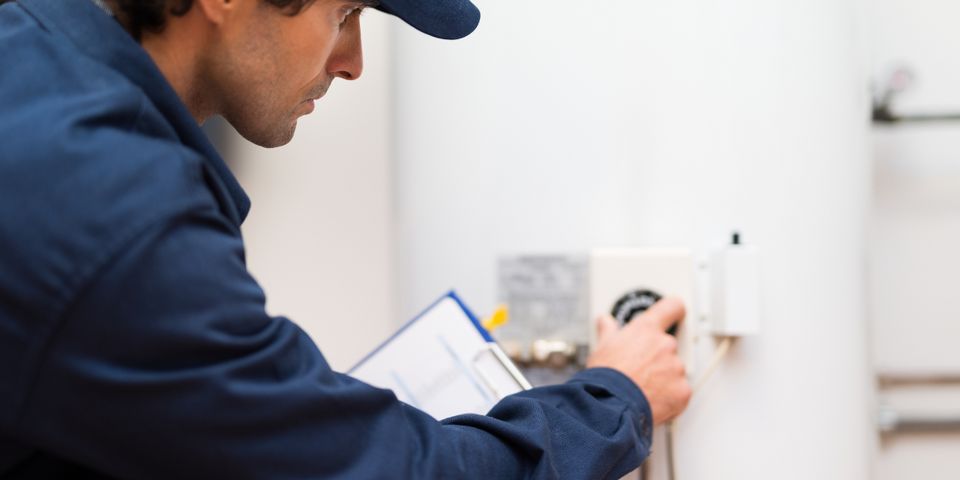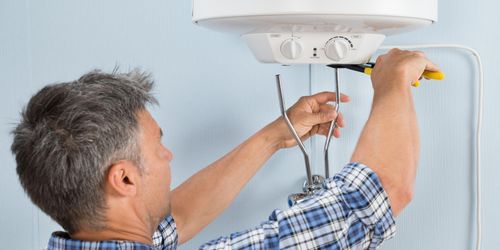Ways to Cope with the Major Hot Water Heater Urgencies
Ways to Cope with the Major Hot Water Heater Urgencies
Blog Article
How do you feel on the subject of Warning Signs You Need Water Heater Repairs?

A hot water heater is one of the most essential standard appliances that can be discovered in a residence. With water heaters, you don't need to undergo the anxiety of heating water manually each time there is a need to take a bath, wash, or the recipes. There is constantly a possibility that your water heating system would certainly act up as with many mechanical gadgets.
It is important to keep in mind any kind of little breakdown and also tackle it promptly before points leave hand. Many times, your water heater starts to malfunction when there is an accumulation of sediments as a result of constant usage. As a precaution, periodic flushing of your hot water heater is advised to prevent debris build-up and stop useful failure.
Common water heater emergency situations as well as just how to deal with them
Insufficient warm water
It may be that the water heating unit can't support the warm water need for your apartment. You can upgrade your water heating system to one with a larger ability.
Rising and fall water temperature level.
Your water heating unit could start creating water of various temperature levels typically ice scalding or cool hot. There may be a need to replace either the thermostat or the home heating system of your water heater.
Leaking water heater container.
In this circumstance, you should turn off your water heating system, allow it to cool down, and also carefully look for the source of the trouble. At times, all you require to do is to tighten a few screws or pipeline links in cases of minor leaks. If this does not function and also the leakage persists, you might need to employ the services of a service technician for an ideal substitute.
Discolored or stinky water
When this happens, you require to know if the issue is from the storage tank or the water resource. If there is no amusing smell when you run cool water, then you are particular that it is your water heating system that is defective. The stinky water can be caused by corrosion or the build-up of microorganisms or sediments in the water heating unit storage tank.
Verdict
Some property owners overlook little caution and also minor faults in their water heater device. This just results in more damage as well as a possible complete breakdown of your device. You should deal with your water heater mistakes as quickly as they come near avoid even more expenditures as well as unneeded emergency difficulties.
With water heating systems, you don't need to go through the stress of home heating water manually every time there is a requirement to take a bath, do the washing, or the recipes. It might be that the water heater can't support the warm water demand for your apartment. Your water heater can begin producing water of various temperature levels usually ice cool or hot hot. If there is no funny odor when you run cold water, then you are particular that it is your water heater that is defective. The odiferous water can be created by rust or the buildup of germs or sediments in the water heating unit tank.
Common Water Heater Issues and What You Should Do
What Type of Water Heater Do You Have?
Before we begin it’s first important that you identify the type of water heater you have on your property. There are two main types of water heaters out there: conventional and high efficiency.
Both of these types of products typically use either gas or electricity to heat power. There are also solar water heaters that use a thermal collector on the roof or yard to heat the water.
While these models are not as common, they can cut heating costs in half. In this article, we will focus on conventional and high efficiency.
How Do My Electric and Gas Water Heater Work?
Though they look similar, electric and gas water heaters work very differently. It’s important to know their basic function because often problems can be specific to the heating source.
In the electric model, a thermostat on the side of the machine detects the temperature of the water in the tank. When the temperature needs to rise electricity flows to a heating element suspended in the water.
Gas models also use a thermostat device — typically with a mercury sensor at the tip and an additional sensor called a thermocouple. The thermocouple detects whether the pilot light is on and controls the flow of gas.
When the thermostat drops below the appropriate level gas is released which becomes ignited by the pilot light. The flame heats the bottom of the water tank which causes hot water to rise and cold water to drop.
This natural circulation continues until the water reaches the desired temperature. Then, the thermostat triggers the gas control valve to shut off the flow of gas.
What Are the Most Common Issues and How Do You Fix Them?
https://happyhiller.com/blog/common-water-heater-issues-and-what-you-should-do/

Do you appreciate more info about Common Hot Water Heater Problems? Place a remark down below. We'd be pleased to listen to your opinions about this posting. In hopes to see you back again later on. Are you aware of somebody who is excited by the subject? Be sure promote it. Thanks a lot for your time. Visit us again soon.
Tap issues? Ring! Report this page